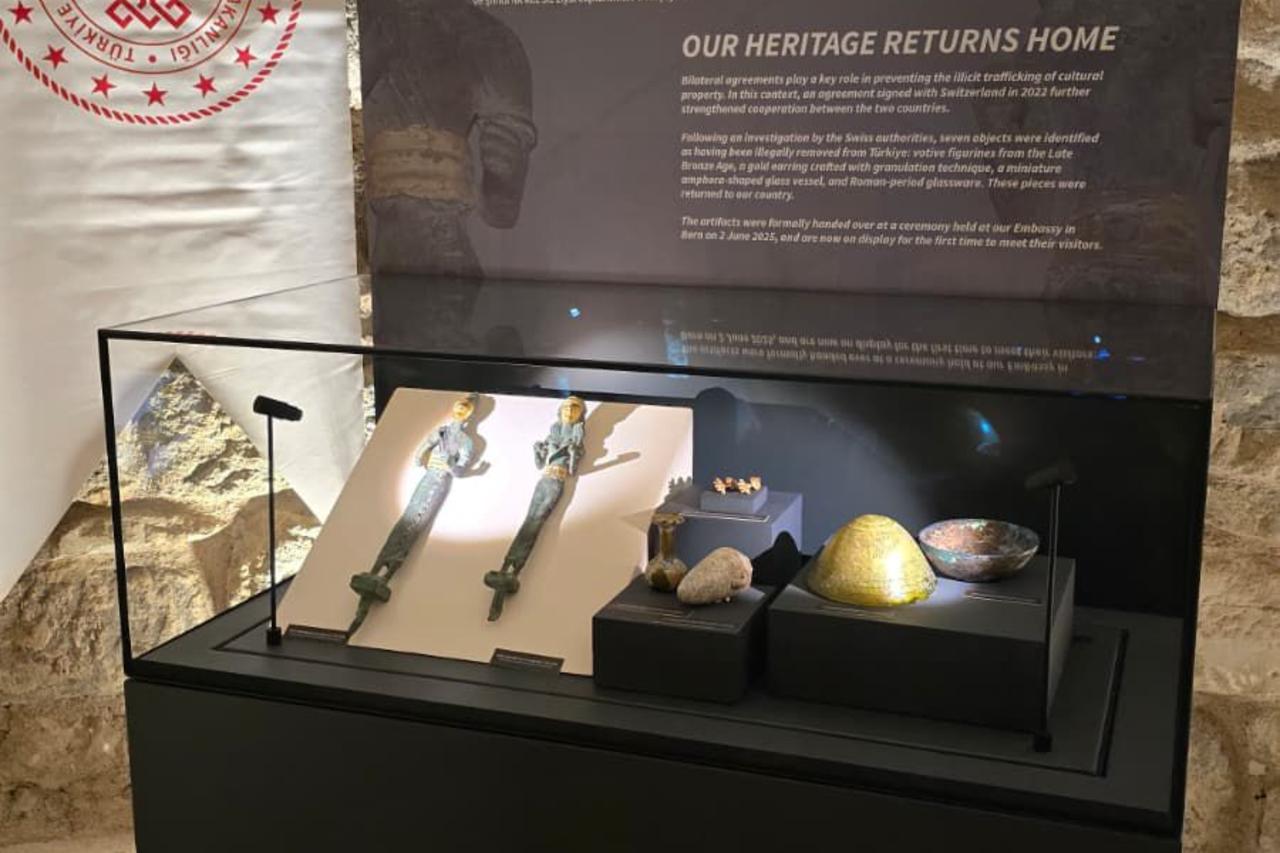
Türkiye's Culture and Tourism Minister Mehmet Nuri Ersoy presented seven historical artifacts that Swiss authorities returned to Türkiye on June 2, 2025, and said they will go on display at Bodrum Castle. He pledged to keep up the pursuit of looted heritage, saying: “We will bring back every looted artifact one by one.”
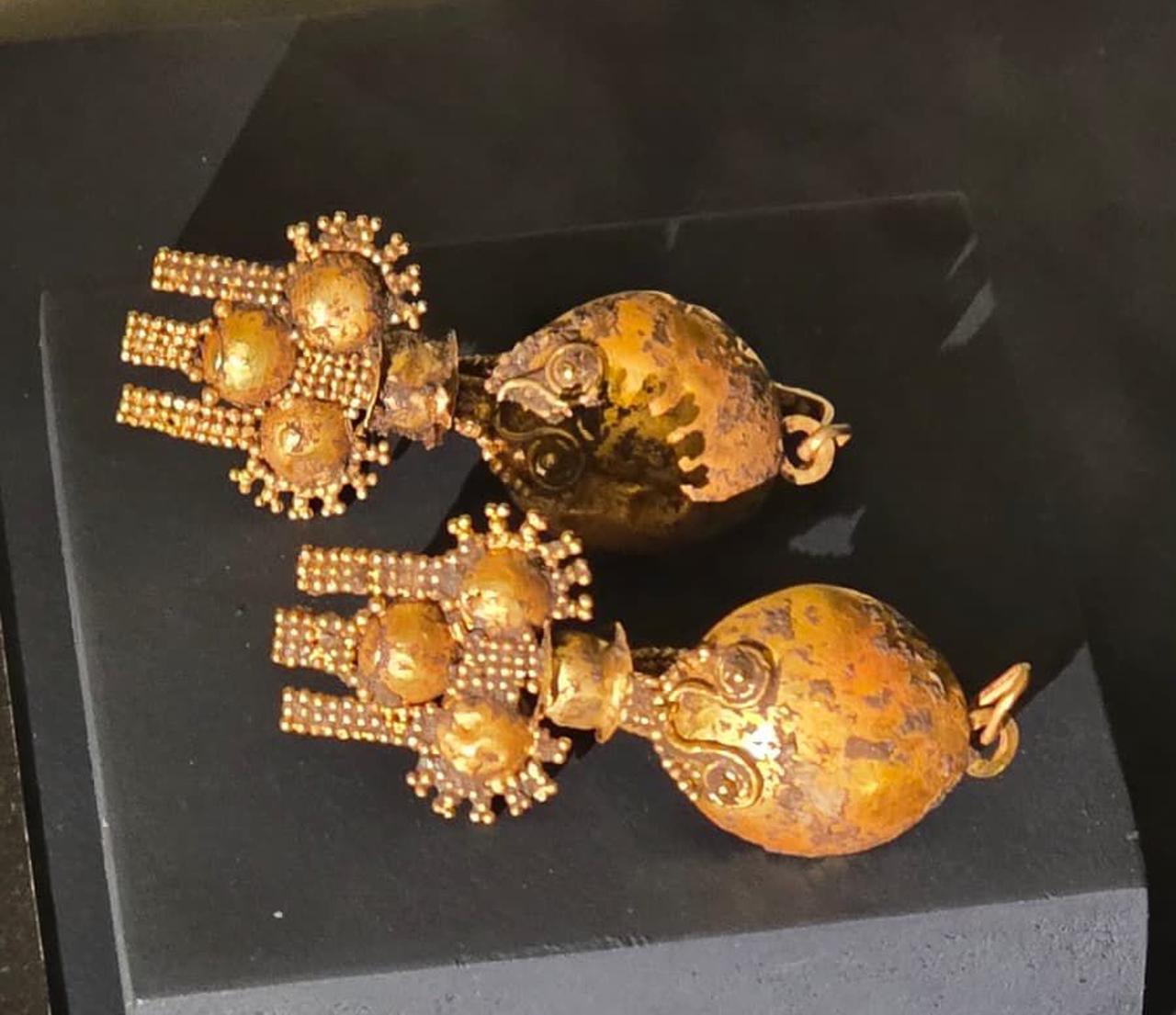
The handover took place under a 2022 bilateral agreement to prevent the illicit trafficking of cultural property. Ersoy underlined that Swiss officials contacted Turkish counterparts and carried out the return within that framework. Türkiye’s Anti-Smuggling Department and museum experts documented that the pieces were of Anatolian origin and had been removed without permission.
The Swiss Federal Office of Culture seized the group in St. Gallen Canton during a criminal investigation before arranging the transfer to Türkiye.
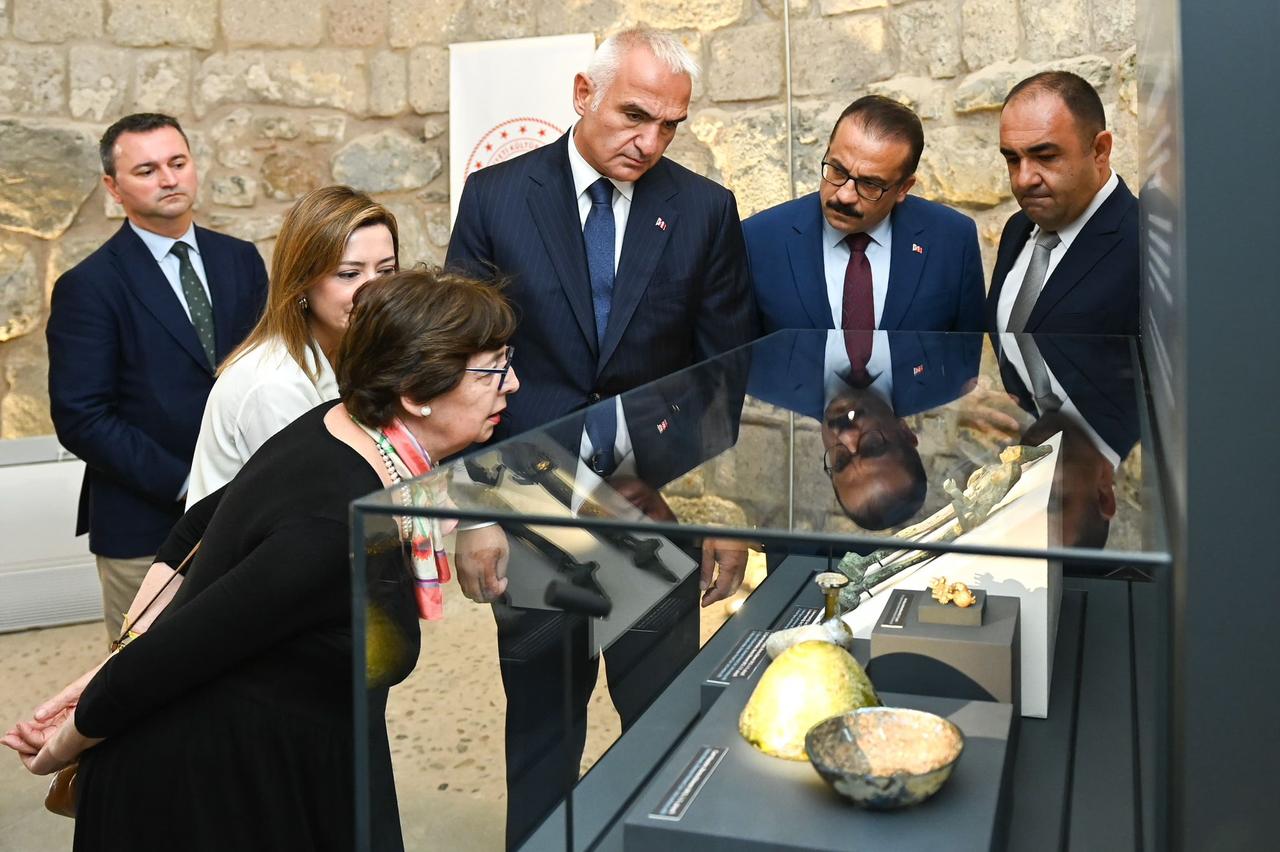
Ersoy said efforts do not only rely on international cooperation but also draw on public awareness and law enforcement work in the field.
He pointed to community education in Anatolia and close monitoring by security units, noting that operations by the Turkish National Police, the Gendarmerie General Command, and Customs Enforcement helped ensure that more than 900,000 artifacts were secured for museums inside the country over the last five years before they could be taken abroad.
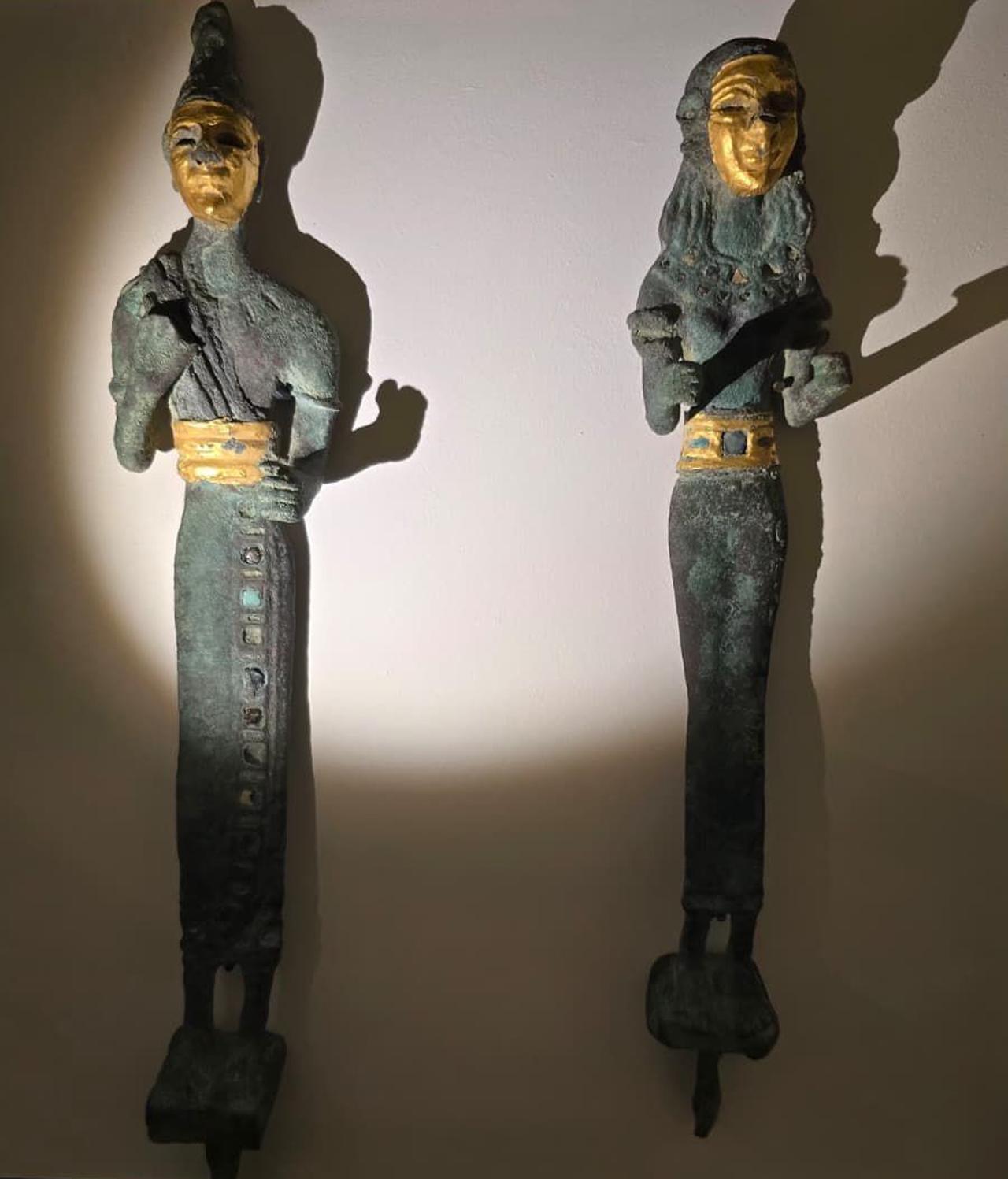
The returned pieces span the Late Bronze Age and the Roman period. They include male and female votive figurines with gilded faces and belts, evaluated as cult objects dedicated to deities and believed to protect their findspots.
Their form and technique closely match examples from the Uluburun Wreck, reinforcing their Anatolian origin. A rare gold earring made with granulation showcases refined ancient metalwork. Two Roman-period glass vessels—a balsamarium (a small bottle for oils or perfumes) and a miniature amphora—reflect everyday and funerary uses. Early medieval glass oil cups belonging to a polycandelon (a multi-armed hanging lamp used in religious settings) round out the group.
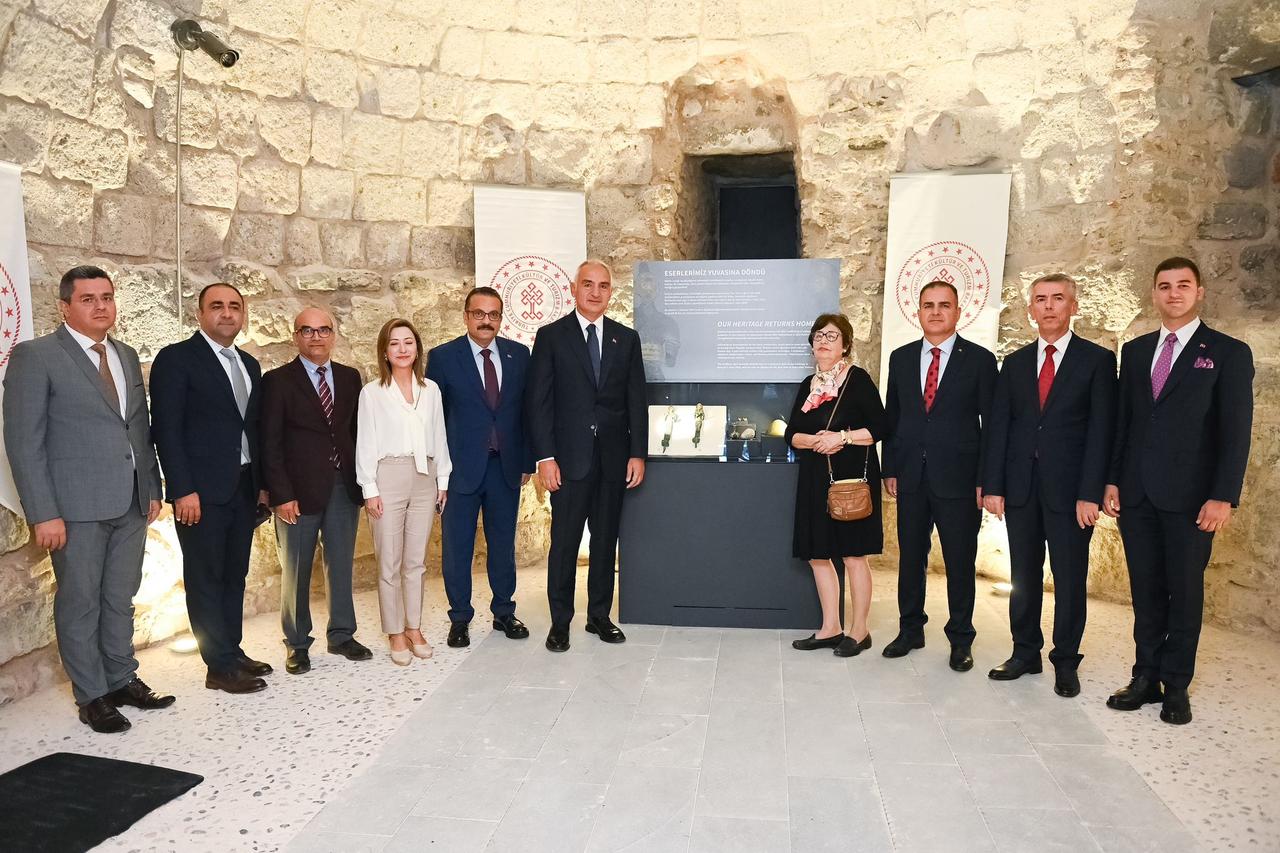
Ersoy said each successful return sends a strong message. Collectors now understand that if they add an Anatolian artifact removed without permission and bring it into the open, Turkish authorities will detect it and seek its return, a dynamic that has reduced demand and, in turn, helps deter looting. He added: “This is neither the first nor the last artifact.”